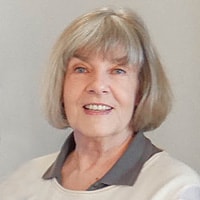Former SOU administrator and consultant appointed to Board of Trustees
(Ashland, Ore.) — Liz Shelby, who retired from Southern Oregon University after serving as director of government relations and chief of staff, and lobbyist and government relations consultant Iris Maria Chávez have both been appointed by Gov. Kate Brown and confirmed today by the Oregon Senate to serve on the university’s Board of Trustees. They will begin their service to the board on Sept. 28.
 Shelby will complete the partial four-year term to which retired Oregon Supreme Court Justice Virginia Linder was appointed in February, but was unable to serve. Chávez will complete the unexpired four-year term of Lyn Hennion, who served on the board since its inception in 2015 and was appointed to a new term in June.
Shelby will complete the partial four-year term to which retired Oregon Supreme Court Justice Virginia Linder was appointed in February, but was unable to serve. Chávez will complete the unexpired four-year term of Lyn Hennion, who served on the board since its inception in 2015 and was appointed to a new term in June.
“I am honored and excited to join the Board of Trustees of Southern Oregon University,” said Shelby, who served for 25 years at SOU before her retirement in 2017. “With my background and commitment to public higher education in Oregon, I am eager to help guide the sustainability and diversity of SOU during this important time in the university’s history.”
 Chávez is the managing partner of Equity Action Partners of Portland, and has more than 15 years of experience working in government affairs, community engagement and communications for advocacy organizations and think tanks, advancing state and federal policy to improve community outcomes and increase government accountability. She has built issue-advocacy campaigns with a variety of advocacy and civil rights organizations across the country, leading to bipartisan legislation to provide investments in education, public safety, social justice and child welfare.
Chávez is the managing partner of Equity Action Partners of Portland, and has more than 15 years of experience working in government affairs, community engagement and communications for advocacy organizations and think tanks, advancing state and federal policy to improve community outcomes and increase government accountability. She has built issue-advocacy campaigns with a variety of advocacy and civil rights organizations across the country, leading to bipartisan legislation to provide investments in education, public safety, social justice and child welfare.
“I’m excited to join my new colleagues on the board at Southern Oregon University,” Chávez said. “I look forward to supporting the strategies and vision that will ensure the continued success of the university and our students.”
Chávez serves as the board chair for the Partnership for Safety & Justice and is a board member for the Latino Network Action Fund. She has built coalitions with – and advocated on behalf of – organizations including the Education Trust, League of United Latin American Citizens, Chalkboard Project, Children’s Institute, Partnership for Safety & Justice, Sponsors, Inc., and the Oregon Coalition of Community Charter Schools.
She earned her bachelor’s degree in history, sociology and African Diaspora Studies from Tulane University and her master’s degree in social policy from the University of Chicago.
Shelby served six SOU presidents as director of government relations and three as chief of staff before her retirement five years ago. She was involved in several significant transitions for the university, including its name change from Southern Oregon State College in 1997 and the shift to an independent board of trustees in 2015.
She previously served 16 years as director of the federal Small Business Development Center in the SOU School of Business, helping local entrepreneurs with business plans and working with existing business owners to develop strategies that increase profitability.
Shelby, a two-time alumna, earned her bachelor’s degree in business and her master’s degree in business administration at SOU. She is the board chair for the Resolve Center for Dispute Resolution and Restorative Justice and is vice president of the Jefferson Public Radio Foundation’s board of directors. She previously served on the board of Rogue Credit Union for 14 years.
“The SOU Board of Trustees is very happy to welcome Iris and Liz to the board,” said Daniel Santos, the board chair. “Their expertise and broad range of experiences will help all of us to guide the university and advance its mission for the next 150 years. We are also tremendously grateful for Lyn Hennion’s lengthy and insightful service and leadership on the SOU Board; we wish her the very best.”
-SOU-










